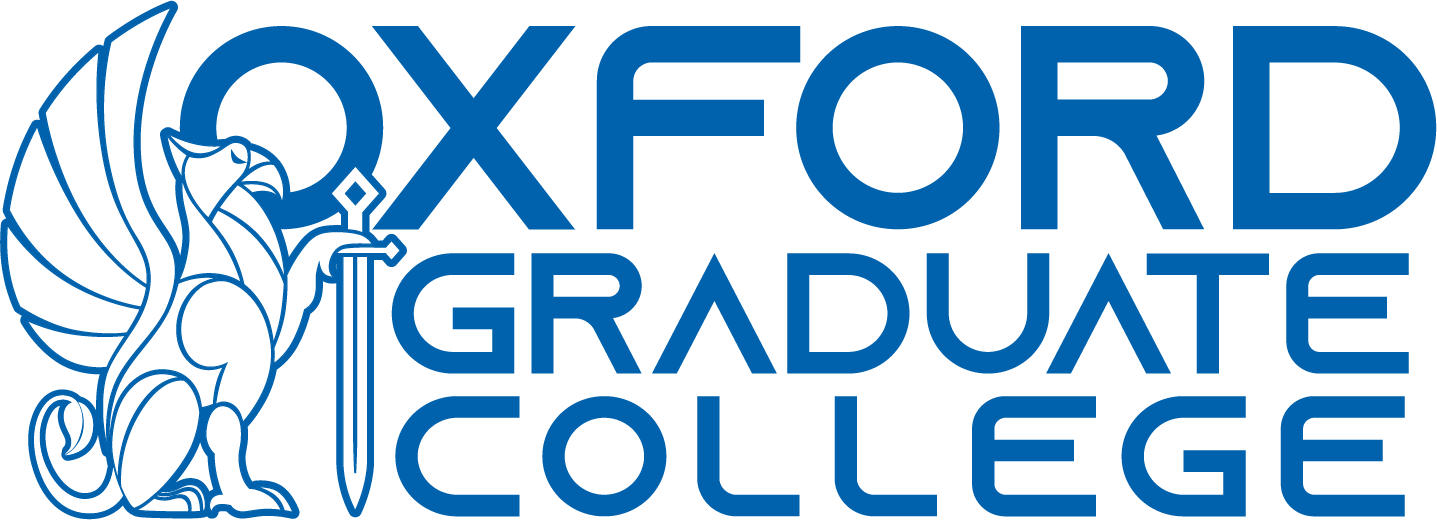
PROGRAMME SPECIFICATION
NAME OF PROGRAMME:
GRADUATE DIPLOMA- ELECTRICAL AND ELECTRONICS INSTRUMENTATION
Philosophy
The Graduate Diploma- Electrical and Electronics Engineering will give you the opportunity to develop an in-depth knowledge of this fascinating field. You’ll be equipped with the practical skills and professional experience you need to analyses, design, and build electrical and electronic circuits. This broad-ranging program covers the core aspects of the generation, distribution, storage, and conversion of electrical power, alongside a wide choice of specialist modules, including everything from the operation through to national-scale electricity networks. Electrical and Electronic Engineering is a multidisciplinary diploma. It has the widest technical range of all our courses, allowing you to study a variety of topics including electronic design, communications, microelectronics, power generation and distribution, electrical machines, renewable energy systems and instrumentation.
Information on Award
| Final Award | GRADUATE DIPLOMA- ELECTRICAL AND ELECTRONICS ENGINEERING |
| Programme Title | GRADUATE DIPLOMA- ELECTRICAL AND ELECTRONICS ENGINEERING |
| LEVEL | 6 |
| Duration of Course | Suggested Time 18 Months
Can be completed in a shorter time. |
| TOTAL QUALIFICATION TIME (HOURS) | 2400 |
| CREDITS | 240 |
| Entry Requirements | Applicants must:
· Possess at minimum of any related Associate Degree in the relevant field. · EDUQUAL Level 5 Diploma · RQF/QCF/NQF Level 5 Diploma · SCQF Level 8 Diploma · EQF/FHEQ Level 5 Diploma · * Recognition of Prior Learning will be considered |
| Major pathways within the course – Where course can lead to different areas of emphasis | Completion of the course can encourage participants to pursue further studies into:
· Post Graduate Diploma- Electrical & Electrical Engineering · Post Graduate Diploma- Instrumentation Engineering · MSc- Project Management · MSc- Health and Safety. · Bio- Medical Engineering. |
| Targeted occupations for graduates | After completion of the course, graduates can serve in organizations in positions as:
· Electronic Engineer · Electrical Engineer · R&D Engineer · Sales Engineer |
Programme Aims
| The main aims of the Graduate Diploma in Electrical and Electronic Engineering are to: | · To enable students to pursue professional careers in electrical and electronic engineering at a level which requires the exercise of sound judgement, personal responsibility and initiative, and the ability to make engineering decisions.
· To equip students with an understanding of the principles of electrical and electronic engineering science, some aspects of which will be at, or informed by, the current boundaries of the discipline. · To equip students with skills to systematically employ engineering principles to produce original analyses of, and solutions to, engineering problems. · To provide a broadly based education in electrical and electronic engineering allowing scope for entry into a wide range of disciplines within engineering. · To enable students to work successfully in engineering teams. |
The Learning Outcomes
| On completion of this program, participants should be able to:
|
· Use their knowledge and understanding of electrical and electronic science to produce soundly based solutions to engineering problems, through the careful evaluation of available evidence, arguments and assumptions.
· Apply theoretical and practical techniques in a creative way to the analysis and solution of engineering problems. · Provide a high level of technical leadership. · Operate within the appropriate code of professional conduct, recognizing obligations to society, the profession and the environment. |
Programme Structure and Requirements
| UNIT TITLE | STRATEGIC LEADERSHIP |
| TQT (Hours) | 200 |
| UNIT AIM & SUMMARY | This unit provides an in-depth understanding of the key principles and practice of leadership This will enhance the individuals’ knowledge, skills and attributes to effectively engage in the role and responsibilities required of an effective team player and leader of a team; being proactive in innovation and improvement to inform strategy and business planning within the organisation. |
–
| UNIT TITLE | PROJECT AND LOGISTICS MANAGEMENT |
| TQT (Hours) | 200 |
| UNIT AIM & SUMMARY | The aim of this unit is to allow the learner to understand concepts of portfolio management and the associated features. The value of having a Project Management Office will also be examined and the stages of establishing and effective project management office will be considered. Learners will also examine the supply chain ecosystem and review IT frameworks appropriate for logistics and supply chain complexities. |
–
| UNIT TITLE | QUALITY & RELIABILITY IN ENGINEERING |
| TQT (Hours) | 200 |
| UNIT AIM & SUMMARY | The aim of this unit is to teach the importance of quality as it’s relates to which performance of goods and services meets expectations, whereas the reliability is the probability that a system or component performs its intended function for a specified interval under stated conditions. This unit is about the design process that leads to reliable systems with built-in quality. It enables measurement of effectiveness and repeatability. The aim of this unit is to develop knowledge and understanding of artefact quality, reliability, safety, and maintainability by measurement and planning. |
–
| UNIT TITLE | RENEWABLE ENERGY TECHNOLOGY |
| TQT (Hours) | 200 |
| UNIT AIM & SUMMARY | The aim of this unit will allow students to apply the basic concepts of science and engineering in the solution of wide range of renewable energy engineering technical and practical problems. Possess the ability to experiment, design, operate and service technical system that integrate contemporary engineering practices and modern tools and to overcome environmental and sustainability constraints. |
–
| UNIT TITLE | CONTROL SYSTEMS |
| TQT (Hours) | 200 |
| UNIT AIM & SUMMARY | This unit is about the methodology used for the design and evaluation of control systems. The aim of this unit is to provide the knowledge and skills required to design and evaluate control systems relating to mechanical, manufacturing, and electrical engineering applications. |
–
| UNIT TITLE | POWER GENERATION DISTRIBUTION AND TRANSMISSION |
| TQT (Hours) | 200 |
| UNIT AIM & SUMMARY | The unit aims to teach students how to design transmission and distribution power system. The students will learn how to choose the ratings of transformers, circuit breakers, and cross sectional area of cables and overhead lines needed to build transmission and distribution system. Students will also learn how to design transmission and distribution power system. The students will learn how to choose the ratings of transformers, circuit breakers, and cross sectional area of cables and overhead lines needed to build transmission and distribution system. |
–
| UNIT TITLE | MATHEMATICS FOR ENGINEERING |
| TQT (Hours) | 200 |
| UNIT AIM & SUMMARY | This unit is about advanced mathematical techniques and their applications as required by practicing engineers. The unit aim is to equip the learner with the mathematical expertise required to function as a professional engineer. |
| UNIT TITLE | HEALTH AND SAFETY LAW AND REGULATION. |
| TQT (Hours) | 200 |
| UNIT AIM & SUMMARY | The aim of this unit is to give learners an understanding of international frameworks for health and safety legislation and regulation, how these frameworks are set, and the subsequent obligations on organizations to comply. The learner will explore the role played by industry, professional bodies and media communities to influence the promotion of positive health and safety outcomes locally, nationally and globally. |
–
| UNIT TITLE | AC/DC SYSTEM DESIGN |
| TQT (Hours) | 200 |
| UNIT AIM & SUMMARY | The aim of this unit is the study of AC/DC SYSTEMS DESIGN and introduces the concepts governing the common types of machines, their characteristics and peculiarities. On completion of this unit, a learner will be capable of carrying out the selection, commissioning and maintenance of common AC/DC systems. |
–
| UNIT TITLE | INSTRUMENTATION |
| TQT (Hours) | 200 |
| UNIT AIM & SUMMARY | The aim of this unit will teach you how to install, maintain, test, and calibrate highly complex devices that are used in the automation of industrial processes. Through the use of state of the art simulation equipment, as well as hands-on applied technology training and general academic coursework, the student will develop the skills required to be a successful Instrument Technologist. |
–
| UNIT TITLE | Procurement and Supply Management |
| TQT (Hours) | 200 |
| UNIT AIM & SUMMARY | The unit seeks to provide learners with a thorough understanding of procurement and supply management from a strategic, technological, process and relationship perspective. The goal is to provide insights on the role of procurement within supply chain management, the tools and techniques to assess sourcing options, the negotiation and contractual issues encountered with suppliers, effective supplier relationship management and technological enablers in procurement. |
–
| UNIT TITLE | MATERIALS SCIENCE |
| TQT (Hours) | 200 |
| UNIT AIM & SUMMARY | This unit is about the structure-mechanical property interrelationship of engineering materials and their predictive performance at the design, manufacture and in-service stages. The aim of this unit is to provide the knowledge required to understand the properties and behaviour of materials used in engineering applications particularly metals, polymers and ceramics. |
| UNIT TITLE | PROCESS TECHNOLOGY/ENGINEERING |
| TQT (Hours) | 200 |
| UNIT AIM & SUMMARY | The aim of this unit will teach students the responsibility for ensuring that a production process and related equipment are running reliably and effectively. This includes monitoring equipment and process parameters, planning upgrades and maintenance, and developing and implementing changes that improve uptime and output quality. |
–
| UNIT TITLE | ELECTRONICS AND COMMUNICATION SYSTEMS |
| TQT (Hours) | 200 |
| UNIT AIM & SUMMARY | The unit aims to develop the knowledge of semiconductor devices, power supplies, low frequency signal amplifiers, oscillators, digital logic circuits and logic families. The unit is also aimed to develop an understanding of communication principles and systems. |
–
| UNIT TITLE | HYDRAULICS AND PNEUMATICS |
| TQT (Hours) | 200 |
| UNIT AIM & SUMMARY | The aim of this unit is to provide student with knowledge on the application of fluid power in process, construction and manufacturing Industries. Students will also have an understanding of the fluids and components utilized in modern industrial fluid power system and develop a measurable degree of competence in the design, construction and operation of fluid power circuits. |
| UNIT TITLE | MECHANICAL ENGINEERING SCIENCE |
| TQT (Hours) | 200 |
| UNIT AIM & SUMMARY | The aim of the Mechanical Engineering Science unit is to equip students with a deep understanding of mechanical principles and their applications, covering mechanics, thermodynamics, fluid dynamics, and materials science, to design, analyse, and optimize mechanical systems for modern engineering challenges. |
| Research Skills | Research Project |
| Description | A comprehensive research project encompassing all of the knowledge and skills gained throughout the duration of the programme. |
Information about Assessment Regulations
Participation and completion of all assessments are mandatory in order to obtain an overall final grade for the unit.
The use of any of the following Assessment Methods may be utilized in the individual assessments
- Course Assignments
- Self-study assignments
- Online Quizzes
